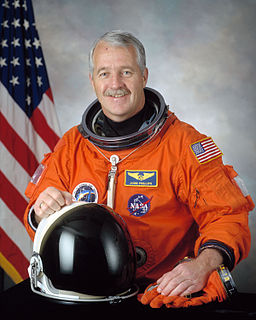A Quote by Robert J. Sawyer
The single best thing about Mars is the reduced gravity. It's 38 percent of Earth's gravity - about one third. Almost never have you seen that portrayed in film or television. Mars is just portrayed as a place that's got reddish sand but is otherwise pretty much identical to the Mojave Desert, and that's not the case.
Related Quotes
I think my career will end too early for me to go to Mars, though I might be involved in preparing the next generation to go. I'd love to explore Mars, but, ultimately, it's kind of a crappy planet. The thing is, Mars One people would never go outside without a spacesuit ever again. You're going to live in a tin can. Space stations are noisy; it's like living inside a computer with the fan on all the time. You're never going to smell grass or trees. It's just never going to be anything like Earth. You're never going to swim. You're giving up so much.
Well, my intention is to make work about being uncomfortable. About being in a world that isn't always the world you want to be part of. I talk a lot about the free fall, the moment in the scene where gravity takes over, and the beautiful awkwardness when gravity wins. Gravity is hilarious. Gravity always wins.
For example, in your house, you have the heater on the ground itself. Here, it's the gravity. No matter where you are, that's where the gravity is coming from. It's almost like a carpet that you put down. If you're on the other side, it doesn't matter to us because we're still walking on the ground. Actually, at the beginning of the film [Valerian], we see when they install the gravity system.
People say, oh we just need charismatic leaders to continue on to Mars. Now we've gone to the moon, of course Mars is next. No. Mars was never, of course, next. It is next if you think we went to the moon because we're explorers, but if you know we went to the moon because we were at war then we're never going to Mars. There's no military reason to do it, to justify the expenditure.


































